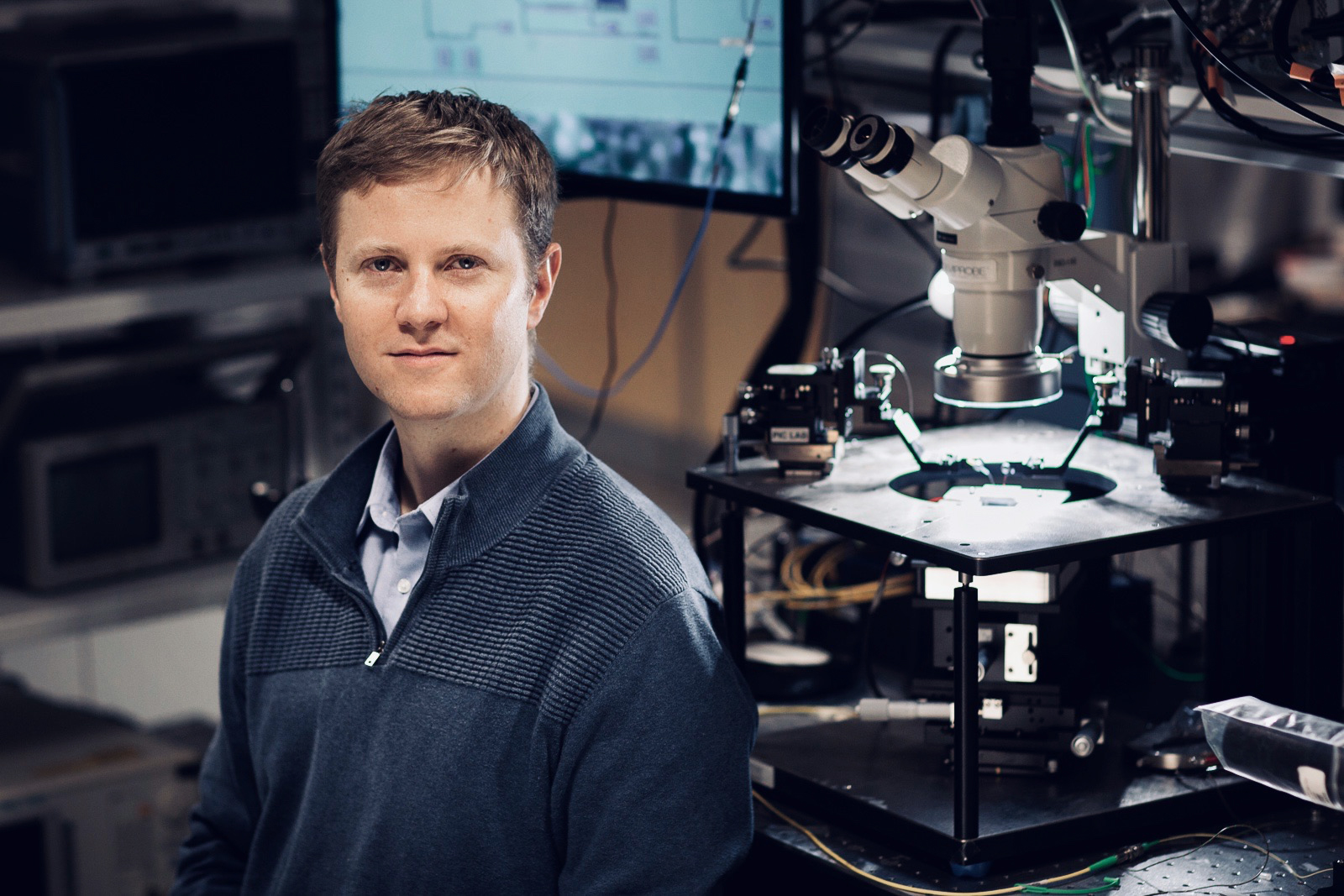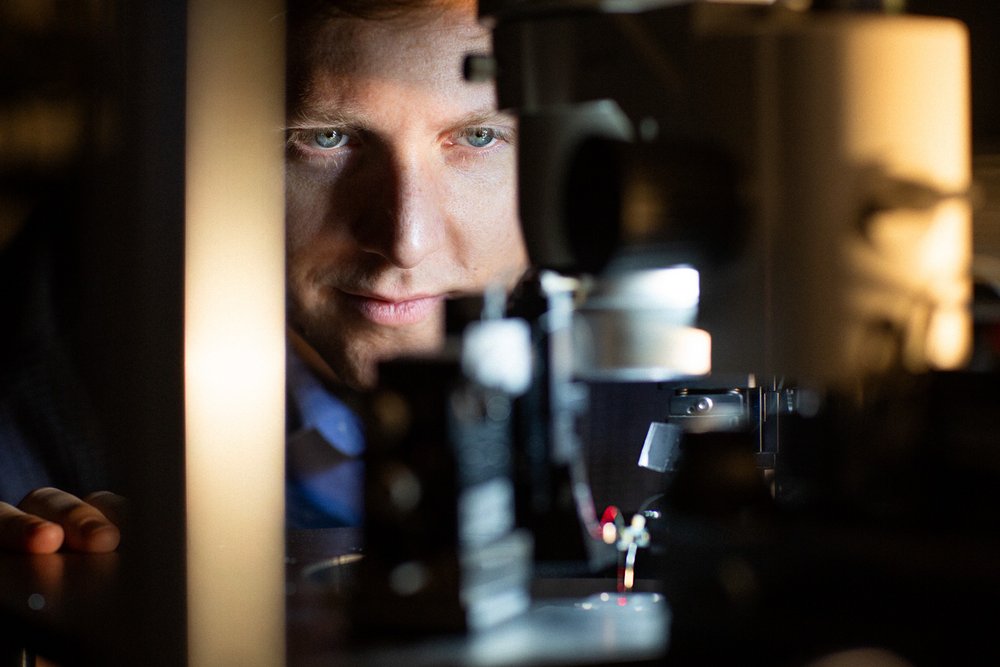New AU researcher investigating miniaturized laser technologies with extreme stability
Nicolas Volet is a laser expert and a new assistant professor at the Department of Engineering. He is starting a research project that may have far-reaching consequences for global data communication.

The Department of Engineering, Aarhus University, has just hired Nicolas Volet to build a new independent research group in Photonics. Nicolas Volet comes with more than ten years of research experience and has contributed to the development of chip-level photonic technologies in the visible, the near- and the mid-infrared spectrum.
He holds a PhD in physics from École Polytechnique Fédérale de Lausanne (EPFL), one of the world's leading technical universities.
"I currently work with lasers that are so small that you can't even see them with the naked eye. And you can't see the emitted light either, because it's infra-red. This makes visiting the laboratory a little dull, because there's simply nothing to see," grins the assistant professor when he introduces his research.
However, this does not mean that his research is any less important. Laser light is fundamental for modern global data communication, and researchers the world over are working to reduce the energy demand of lasers. This is an urgent matter, as the violent growth in Internet traffic means a rapid growth in energy demand.
The Internet is already responsible for approx. 10 per cent of global energy consumption. And traffic is increasing by 25-30 per cent annually.
"For that reason, researchers work hard to optimise the performance of products based on photonic integrated circuits (PICs) while reducing their carbon footprint. Make them smaller, more accurate, more power-efficient and more robust," says Volet, whose first PhD student will start a new research project at Aarhus University in March 2020, which he hopes will have a major impact on the semiconductor laser industries and optical telecommunication.
"One of the unique properties of lasers is the reduced spectral distribution of their optical emission as compared to other light sources. However, this laser ‘linewidth’ can be greatly influenced by the environmental conditions. Without saying too much, we recently came across a physical phenomenon that, to the best of our knowledge, is totally unexplored. We intend to exploit it to significantly reduce the size, the weight, the cost and the complexity of laser packaging for telecommunication and for instrumentation. This technology has a feasible and credible path towards deployment out of the research laboratory, using mature material systems. These advanced PICs will mean much faster data communication, make it all much more energy-friendly, and moreover make the entire system more compact and cheaper to construct," he says.
(The article continues below the picture)

Assistant Professor Nicolas Volet is building up a new independent research group in Photonics at Aarhus University. Photo: Melissa Yildirim, AU Foto.
Nicolas Volet came to Denmark in August and lives in Trøjborg with his wife and his two-year-old daughter.
"I am extremely grateful for this opportunity to continue my research in integrated photonics. At the university we have state-of-the art infrastructures, very talented researchers and amazing staff for support and technology transfer. I'm also happy to teach again: our Department of Engineering has a new Master's curriculum and I'm in charge of two courses in Photonics. It is a great responsibility to transmit our knowledge and passion to new generations of engineers," he says.
Nicolas Volet started his career in Switzerland with a master's degree in physics from EPFL. He wrote his master's thesis on photovoltaic solar energy at the University of Houston. He received a PhD in physics in 2014 from EPFL, for his thesis on vertical-cavity surface-emitting lasers (VCSELs). He was then awarded a postdoctoral fellowship from the Swiss National Science Foundation, and joined professor John Bowers’ group at the University of California, Santa Barbara.
Before his appointment at Aarhus University, he was part of the team setting up the new R&D centre of a tech company in California.
His research interests include the physics and engineering of optoelectronic devices, and are driven to improve the precision, cost and power efficiency of industrial applications. His current projects involve the study of nonlinear phenomena to reduce the linewidth of diode lasers and the development of technologies for integrated quantum photonics.
Contact
Assistant Professor Nicolas Volet
Mail: volet@eng.au.dk
Tel: +45 93522084
